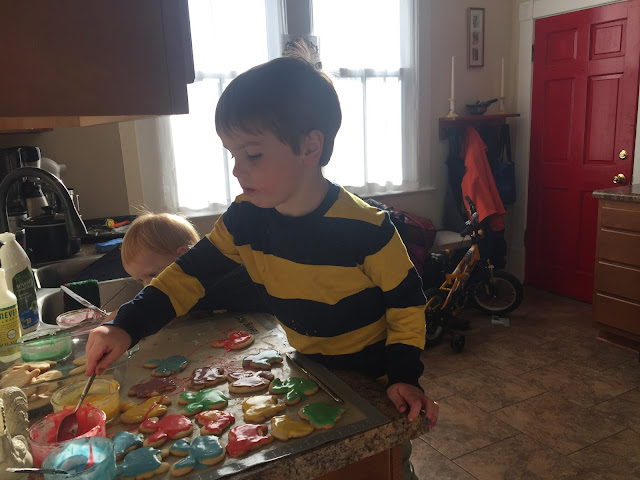Grateful and Open Hearts
How often to you say thank you? Living a life that is focused on
gratitude rather than grief changes who we are. It makes us aware of the gifts
we have been given and focuses us on sharing those gifts with others.
Scientifically, thankfulness has shown to improve people’s health
both physically and mentally. Thankful people often have more and better
relationships with those around them. They are better able to relate to others
and demonstrate empathy. Grateful people get better sleep, have better
self-esteem and are less aggressive. All of these benefits of thankfulness only
help us to see God’s work around us. Grateful people give us a glimpse of God’s
kingdom in the way they live their lives. Being thankful changes our perspective
and make us aware that we have help in this world and that the world is a
beautiful creation; made by a loving God.
What an incredible gift we can give our children! Giving them the
ability to see the world and God with grateful and open hearts will change
their understanding of the world we live in and give them great hope for the
future.
The psalmists understood that gratitude changed how the people of
Israel view God and how gratitude gave them a lens in which to see the world
that uplifted all of creation. Psalms of thankfulness are not written to focus
only on being grateful. They are intended to be specific to a situation. The psalms of thanksgiving give us an
opportunity to see the difficult situation that we are in and to cry out to
God. They give us a chance to tell God what we need in our moment of distress.
These psalms also allow us to open to being delivered by God and then to give
thanks for be saved from the situation.
What if we taught our children that they could approach God with
any problem they had? What if they learned to look for God’s presence in each
person that helps them along the way? How will this simple act of saying thank
you change their lives and the lives of those around them?
Today’s Scripture:
Psalm 107:1-3, 17-22
1 Give thanks to the Lord, for he is good, *
and his mercy endures for ever.
and his mercy endures for ever.
2 Let all those whom the Lord has
redeemed proclaim *
that he redeemed them from the hand of the foe.
that he redeemed them from the hand of the foe.
3 He gathered them out of the lands; *
from the east and from the west,
from the north and from the south.
from the east and from the west,
from the north and from the south.
17 Some were fools and took to rebellious ways; *
they were afflicted because of their sins.
they were afflicted because of their sins.
18 They abhorred all manner of food *
and drew near to death's door.
and drew near to death's door.
19 Then they cried to the Lord in
their trouble, *
and he delivered them from their distress.
and he delivered them from their distress.
20 He sent forth his word and healed them *
and saved them from the grave.
and saved them from the grave.
21 Let them give thanks to the Lord for
his mercy *
and the wonders he does for his children.
and the wonders he does for his children.
22 Let them offer a sacrifice of thanksgiving *
and tell of his acts with shouts of joy.
and tell of his acts with shouts of joy.
Conversation Starters:
- What make you smile during the day?
- What and who are you thankful in your life?
- When is the last time you said thank you to them? How can we say thank you for often?
- Some suggestions by age group:
- Young children:
Give thanks in prayer each night for a least 5 people or things
- Elementary age:
Write 1 thank you note a week to someone who doesn’t usually get thanked
Begin and end your prayers with thanksgiving
- Middle/ High school age:
Write 1-2 thank you notes a week to someone about something they might know helps you, for something more than a gift
Keep a list of why you can be grateful.
Begin and end you prayers with thanksgiving and don’t forget to ask God for the help you need.
- Adults:





Comments
Post a Comment